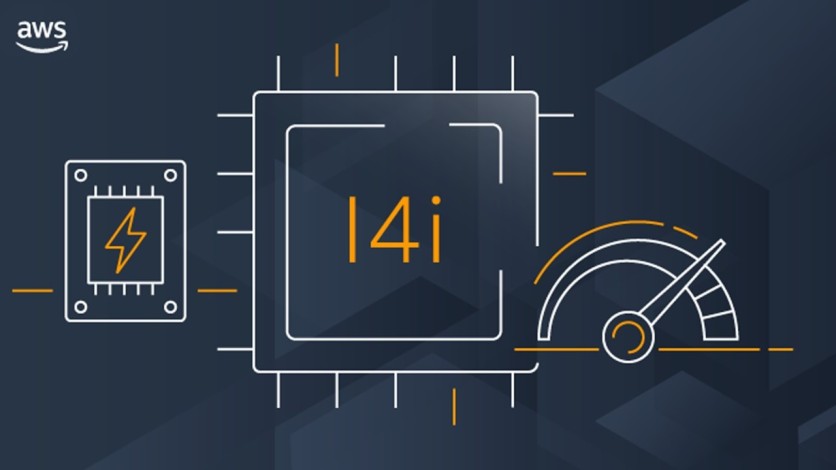Amazon Web Services (AWS) has announced the general availability of the Amazon EC2 I4i instances powered by 3rd generation Intel® Xeon® Scalable processors (code-named Ice Lake).
With the Amazon EC2 I4i instances and the recently announced Amazon EC2 X2idn and X2iedn instances, 3rd gen Intel Xeon Scalable processors now power 48 AWS instances across workloads and markets.

Designed for storage I/O intensive workloads, such as databases, data analytics and search engines, and with an all-core turbo frequency of 3.5 GHz, Amazon announced that the EC2 I4i instances offer up to 30% better compute price performance over I3 instances and always-on memory encryption using Intel® Total Memory Encryption (TME).
I4i instances offer up to 30 terabytes of NVMe storage from AWS Nitro SSDs. According to Amazon, I4i instances provide up to 60% lower storage I/O latency, and 75% lower storage I/O latency variability compared with I3 instances.
These instances deliver the highest local storage performance within Amazon EC2 and are designed for databases, including MySQL, Oracle DB and Microsoft SQL Server, and NoSQL databases, including MongoDB, Couchbase, Aerospike and Redis, where low-latency local NVMe storage is needed to meet application service level agreements. Built on the AWS Nitro System, a combination of dedicated hardware and lightweight hypervisor, I4i instances deliver practically all compute and memory resources of the host hardware to instances.
To meet customer demands for increased scalability, I4i instances provide a new instance size (i4.32xlarge) with 128 vCPUs and 1,024 gigabytes of memory, which is twice that of the largest I3 instance. I4i instances give customers up to 75Gbps of networking speed and 40Gbps of bandwidth to the Amazon Elastic Block Store.
The EC2 I4i Instances are generally available today in AWS regions: US East (N. Virginia, Ohio), US West (Oregon), and Europe (Ireland).
Read the full announcement on Amazon's AWS News Blog.
ⓒ 2025 TECHTIMES.com All rights reserved. Do not reproduce without permission.




